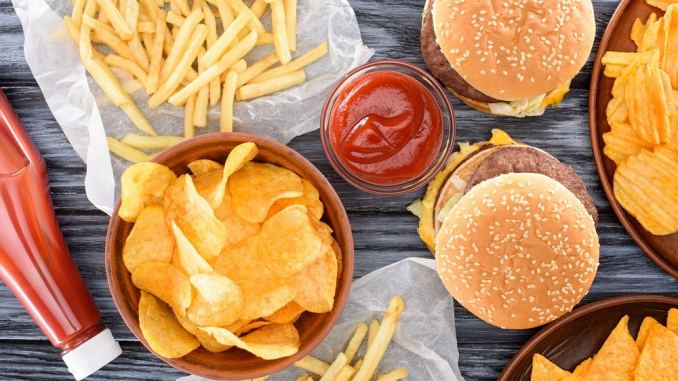
As we now move into the new post COVID-19 timeframe, a new normal has spread throughout the world, our daily routines and behaviors changed drastically. A new study of more than 2,000 people in the U.S. found that the pandemic has also affected how we eat. The authors found a decrease in the consumption of many food groups, particularly healthy foods such as vegetables and whole grains, compared to before the pandemic.
An 36.7% increase in fried food intake and a 46.5% increase of sweets and sugar-added food intake has been associated with weight gain and worsening financial status during our recent lockdown.
“When the pandemic began, we saw panic buying, problems in the food supply chain, increases in food prices and rising unemployment rates,” said Caroline Um, PhD, a postdoctoral fellow at the American Cancer Society. “All these factors along with increased stress and anxiety may have significant influence over food habits during lockdown that can affect access to food, and we wanted to find out if and in what way people’s diets were changing.”
“We were surprised to see decreased consumption for a lot of the healthy foods,” said Um. “This decrease was the most pronounced among women, black and Latino study participants, and participants who gained at least five pounds or more since 2018.”
The new research was based on participants in the Cancer Prevention Study 3 (CPS-3), which enrolled over 300,000 men and women from across the country beginning in 2006. Starting in 2015, participants completed surveys every three years that assessed diet through a validated food frequency questionnaire or a food group questionnaire. In 2020, the researchers enrolled 2,335 participants in a pilot test for a new online portal for the CPS-3 study that included a COVID survey.
“We were already planning to launch this online portal, but when the pandemic began, we decided to incorporate a new COVID survey,” said Um. “In addition to asking about the consumption of major food groups, the survey also asked about other COVID-related aspects such as how the pandemic has affected their physical and mental health, access to healthcare, and financial security.”
The researchers administered a COVID survey in July and August of 2020 and compared the results with responses from the 2018 food group questionnaire, before the pandemic began. Interestingly, most participants indicated that they thought their consumption of all the food groups included in the survey had not changed during the pandemic, showing that perception doesn’t always match up with calculated results.
Some diet changes include – fruit (men −4.2%, women −5%), salad (men −5.9%, women −6.5%), vegetables (men −4.7%, women −6.3%), and lean protein (men −3.6%, women −3.9%) intake decreased. These results were compared to other studies in which stress during “natural disasters” has been shown to correlate with reduced fresh produce consumption. (1)
The researchers note that there are still many factors affecting food availability and access for many Americans. “It’s possible that the shift in consumption of fewer healthy foods will continue,” said Um. “This could raise the risk of gaining weight and thus increase risk for various chronic diseases.”
Um adds that it is important to gain a better understanding of why these changes are occurring and why they may be more pronounced in certain populations so that interventions can be developed to stop the shifts toward unhealthy eating and to prevent this from happening in the future should a similar situation ever occur again.
The researchers are continuing to follow up with study participants to understand how diets continue to change. They are also planning studies that will examine specific psycho-social factors — such as mental health or financial stressors — that might be involved in the changing eating behaviors.

Leave a Reply